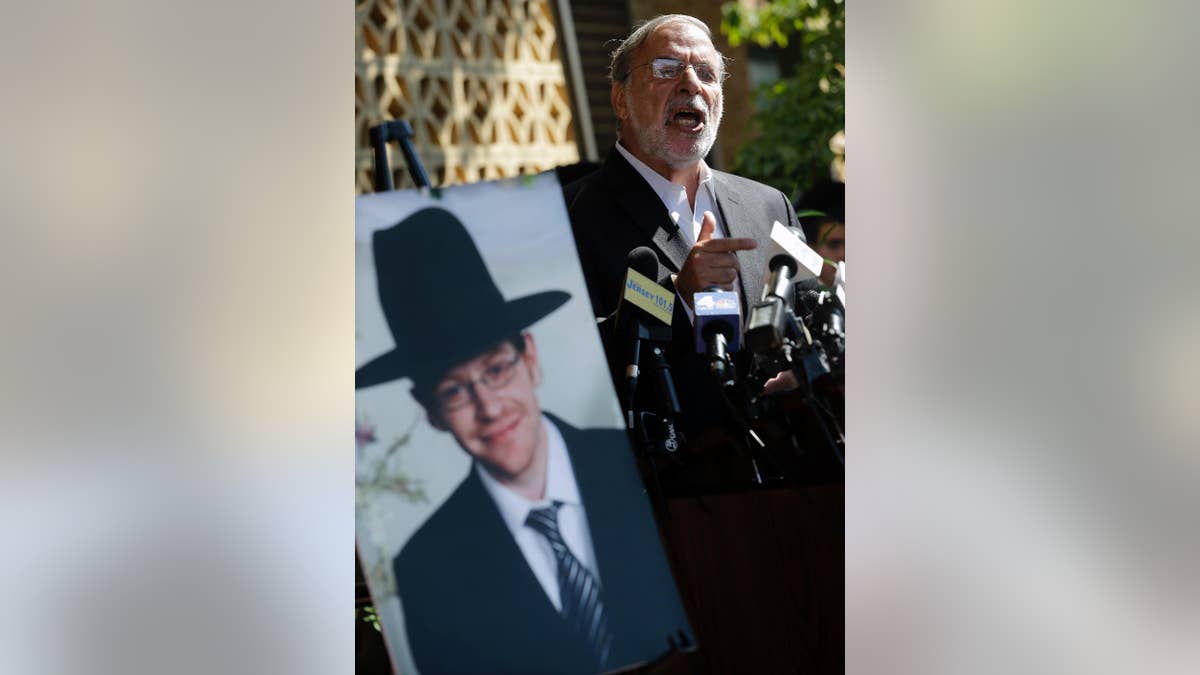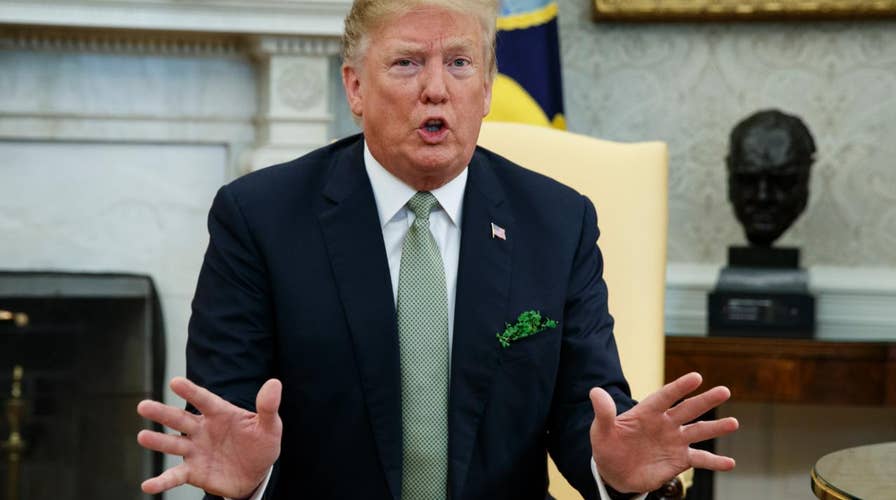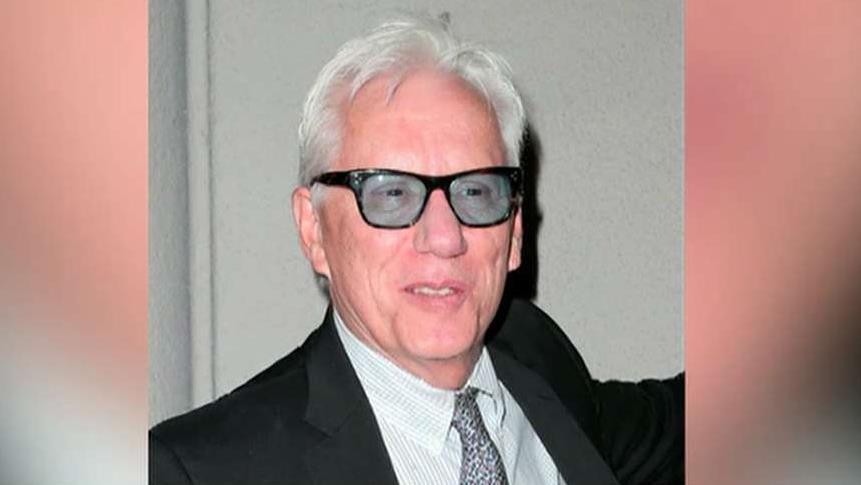Trump calls out Facebook, Google and Twitter for being ‘on the side of the Radical Left Democrats’
President Donald Trump took to social media to blast Facebook, Google, and Twitter, saying the tech giants are ‘on the side of the Radical Left Democrats.’
Former Democratic New York Assemblyman Dov Hikind filed a lawsuit against Rep. Alexandria Ocasio-Cortez, D-N.Y. in federal court on Tuesday for blocking users on Twitter based on their personal viewpoints, following a federal appeals court ruling earlier in the day barring President Trump from doing the same.
"Alexandria Ocasio-Cortez has blocked me on Twitter yesterday apparently because my critique of her tweets and policies have been too stinging," Hikind said in a statement announcing the suit, which was filed in the Eastern District of New York and obtained by Fox News.
"Just today the 2nd Circuit Court of Appeals affirmed a ruling that elected officials cannot block individuals from their Twitter accounts, thereby setting a precedent that Ocasio-Cortez must follow," he added. "Twitter is a public space, and all should have access to the government officials on it."
The First Amendment prohibits discrimination by government actors against a person’s free speech based on his or her viewpoints.
CLICK HERE TO VIEW THE LAWSUIT
Hikind continued: "It's unclear if Ocasio-Cortez is aware of this ruling or not, but either way, I have decided, after speaking with my legal counsel, to initiate a lawsuit against her for blocking me and a host of other public figures. Ocasio-Cortez is acting cowardly and should be ashamed of her attempts to silence me. I’ve done nothing but address her ignorance and disregard for the truth. She constantly brags about the millions of followers she has but is afraid of my speech. She is a hypocrite.
"She is a hypocrite."
"I'm looking forward to the day where she has to unblock me so that free speech in America is guaranteed even when it offends!" he concluded.
The complaint seeks an injunction against Ocasio-Cortez, a declaration that she violated the First Amendment, and an award of attorney's fees. The complaint focuses on Ocasio-Cortez's popular and active @AOC account, with more than 4.6 million followers.
Ocasio-Cortez has maintained a much smaller and rarely used official account, @RepAOC, with only 171,000 followers, but has used her personal @AOC account to discuss politics and engage with constituents and colleagues regularly.
For example, the top post pinned to Ocasio-Cortez's @AOC feed on Tuesday stated, "A #GreenNewDeal is our plan for a world and a future worth fighting for." On July 5, she wrote to Vermont Sen. Bernie Sanders, "Thank you, @SenSanders. It’s an honor to work alongside you and the millions of other people fighting for education, healthcare, and a living wage as rights."
Hikind, speaking to Fox News, added that in addition to himself, “several others, including journalists" have been blocked entirely from viewing or interacting with Ocasio-Cortez's tweets. (Twitter also permits Ocasio-Cortez to "mute" users so that she cannot see their responses, without blocking them from viewing her tweets entirely -- a middle-ground option U.S. District Judge Naomi Reice Buchwald had suggested to Trump.)
The Daily Caller said Ocasio-Cortez blocked the site in May after it contradicted her claims on the Green New Deal rollout. Additionally, OANN's Liz Wheeler tweeted on July 5 that Ocasio-Cortez had blocked her, even though she was "respectful & civil."
After this article was first published, journalist Harry Cherry told Fox News he was blocked after calling Ocasio-Cortez a "moron" following her remarks comparing border facilities to concentration camps.
And, The Daily Wire's Ryan Saavedra wrote on April 5 that Ocasio-Cortez "finally blocked me and it was after I called out her latest set of lies."
Saavedra said he was blocked after writing on Twitter about a viral video of Ocasio-Cortez seemingly using an unusual manner of speech.
"Ocasio-Cortez speaks in an accent that she never uses while telling a room of predominately black people that there is nothing wrong with them folding clothes, cooking, and driving other people around on a bus for a living," Saavedra wrote.
Ocasio-Cortez responded that those "talking about [her] voice can step right off" and claimed she used a similar manner of speech when discussing Brett Kavanaugh and talking at the Women's March. Saavedra reportedly was blocked after finding and posting videos of those speeches that he said contradicted Ocasio-Cortez's claims.
Hikind's complaint mentions Wheeler, Cherry and Saavedra, as well as the student origination “Students for Trump."
Earlier in the day, Hikind said he was seeking others to come forward.
"If you or anyone you know has been blocked by @AOC please get in touch with me ASAP!" Hikind tweeted Tuesday, suggesting he may have wanted to speak to other potential co-plaintiffs or gather additional evidence.
Also on July 9, YouTube star and NY-11 Republican Congressional candidate Joey "Salads" Saladino announced that he, too, was planning to Ocasio-Cortez following the appellate ruling, saying she blocked him shortly after he announced his candidacy in May.
"I'm suing AOC because we need to be able to have a strong and vigorous debate between the parties, otherwise our fragile system of ideas and representation breaks down," Saladino said in a statement. "Though she is not in a position of power, she is the voice of her generation of Democrat voters, and bigger than some of the Presidential candidates."
A Saladino spokesperson claimed in an email to Fox News that Ocasio-Cortez's decision to block Saladino was "unprovoked," and condemned "digital feudalism, which those on the left seem enthusiastic about - completely antithetical to the American Nation."
Saladino has been called a racist because of some of his videos and pranks depicting African-Americans. In one video, he remarked, "the black community is very violent towards Trump and his supporters." (The video appeared to depict black individuals vandalizing a car with pro-Trump stickers, and later emerged to be a fake orchestrated by Saladino.)
In its decision, the 2nd Circuit Court of Appeals noted that because Trump has used Twitter to communicate with the public about his administration, and because his account has been open to the public for people to comment on his posts, it warranted constitutional free speech protection under the First Amendment.
The appellate ruling specifically affirmed a lower court’s decision that declared the president’s account a “public forum" for First Amendment purposes.
TRUMP CAMPAIGN CHECKING OUT TWITTER ALTERNATIVE AMID CENSORSHIP FEARS
“We do conclude," Judge Barrington D. Parker wrote for the majority, "...that the First Amendment does not permit a public official who utilizes a social media account for all manner of official purposes to exclude persons from an otherwise‐open online dialogue because they expressed views with which the official disagrees."

Then-New York assemblyman Dov Hikind standing near a photograph of Aaron Sofer, in Lakewood, N.J., in 2014. Sofer, missing at the time, later was found dead. (AP Photo/Mel Evans, File)
Parker added: "This debate, as uncomfortable and as unpleasant as it frequently may be, is nonetheless a good thing. In resolving this appeal, we remind the litigants and the public that if the First Amendment means anything, it means that the best response to disfavored speech on matters of public concern is more speech, not less."
The court rejected Trump's argument that he was using his Twitter account, which has more than 60 million followers and routinely discusses matters of policy, in a personal capacity.
"We conclude that the evidence of the official nature of the account is overwhelming," Parker said. "We also conclude that once the president has chosen a platform and opened up its interactive space to millions of users and participants, he may not selectively exclude those whose views he disagrees with."
According to court documents, Trump admitted he blocked the case plaintiffs in 2017 after they posted tweets that "criticized him or his policies." Once they were blocked, they were no longer able to view Trump’s tweets while logged in, nor were they able to reply to tweets or view comment threads on Trump’s Twitter page.
The court said Trump’s account indeed was private before he became president, but that changed once he took office and used it for official business, as it has displayed “all the trappings of an official, state‐run account" since. The court said once Trump leaves office, his account would be considered private again.
LINDA SARSOUR GETS BACKLASH FOR 'JESUS WAS PALESTINIAN' TWEET
The Justice Department, meanwhile, stood by Trump's position and indicated an appeal may be forthcoming.
"We are disappointed with the court’s decision and are exploring possible next steps," DOJ spokesperson Kelly Laco said in a statement. "As we argued, President Trump’s decision to block users from his personal twitter account does not violate the First Amendment.”
The opinion concluded by pointing out that in the current political climate, more debate has been good, even if it's "unpleasant" at times.
"The irony in all of this is that we write at a time in the history of this nation when the conduct of our government and its officials is subject to wide‐open, robust debate," the court said.
CLICK HERE TO GET THE FOX NEWS APP
"This debate encompasses an extraordinarily broad range of ideas and viewpoints and generates a level of passion and intensity the likes of which have rarely been seen. This debate, as uncomfortable and as unpleasant as it frequently may be, is nonetheless a good thing. In resolving this appeal, we remind the litigants and the public that if the First Amendment means anything, it means that the best response to disfavored speech on matters of public concern is more speech, not less."
That debate soon may have to extend to members of Congress. Late Tuesday, Hikind tweeted simply, "See you in court @AOC."
Fox News' Bill Mears contributed to this report.













































